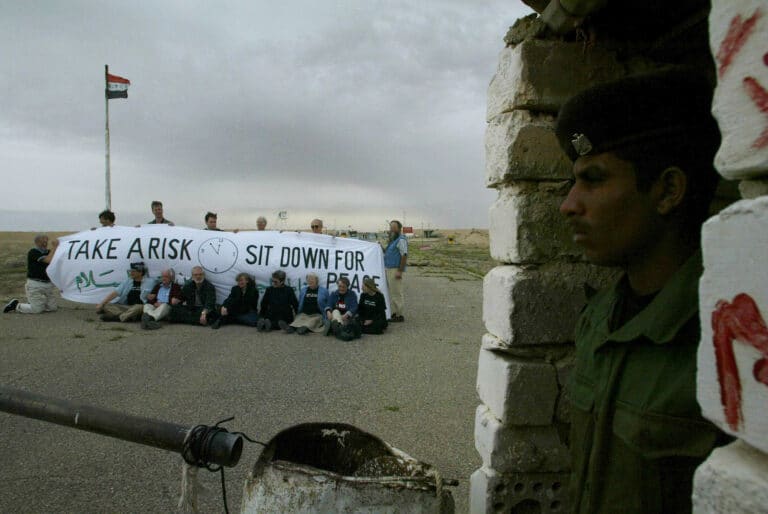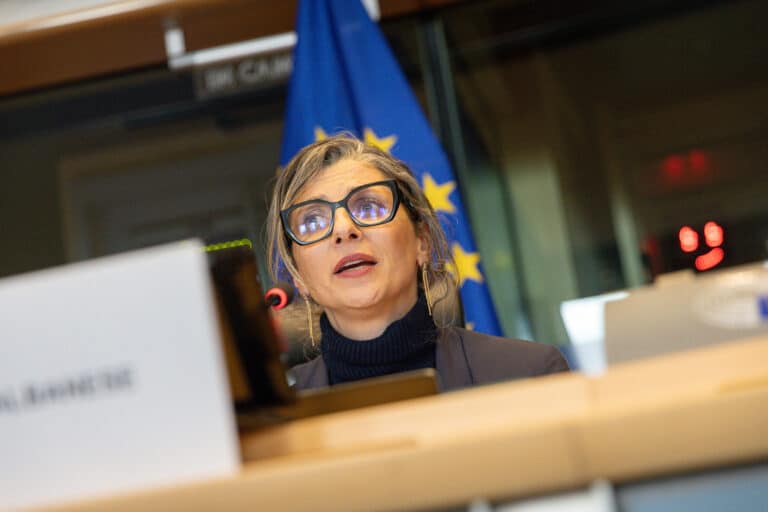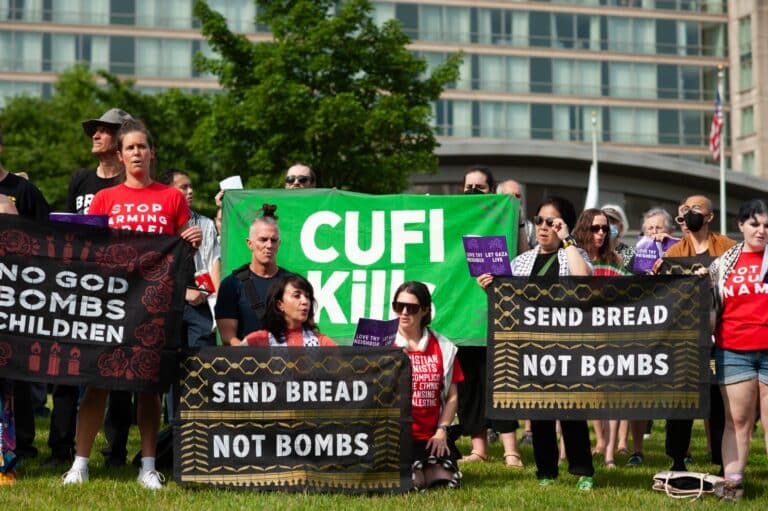 The “Open Shuhada Street” campaign began on 22 February 2010, with demonstrations in al-Khalil and other cities around the world. Since then, Palestinians, Israelis and internationals have held weekly demonstrations in al-Khalil’s Old City every Saturday at 4:00 p.m. with chanting, drumming, speeches and dancing. The campaign aims to reopen Shuhada Street to Hebron’s Palestinian residents.
The “Open Shuhada Street” campaign began on 22 February 2010, with demonstrations in al-Khalil and other cities around the world. Since then, Palestinians, Israelis and internationals have held weekly demonstrations in al-Khalil’s Old City every Saturday at 4:00 p.m. with chanting, drumming, speeches and dancing. The campaign aims to reopen Shuhada Street to Hebron’s Palestinian residents.
On July 24, the Israeli military and police responded violently to one of these demonstrations, punishing the activists with arrests and large fines.
They also targeted a Palestinian shopkeeper who was not involved in the actions but whose shops were in the plaza where Palestinians, Israelis and internationals had been gathering for “Open Shuhada Street” demonstrations. On August 10, the day before Ramadan, police told him to remove his merchandise because they were going to weld shut the doors of his three shops. Although he did so, an Israeli policeman pushed the shopkeeper’s large cart of merchandise into a store seconds before the doors were welded shut.
Police arrested four Palestinians and one international who were present as witnesses to the shop closures. One of the four Palestinians suffered a brain concussion because of rough police handling and Red Crescent of the International Red Cross recommended that the police take him to a hospital. The police said they would take him to jail, question him and then decide about taking him to the hospital. They kept him in jail.
Even though the U.S. Agency for International Development renovated Shuhada for both Palestinians and Israelis as part of the January 1997 Hebron Protocol, Israeli authorities subsequently declared it “a settler-only street.” Israeli settlers and authorities have not only welded shut the entrances to Palestinian shops and residences, they now also control all the market connected to Shuhada Street. These lots once provided al-Khalil’s Palestinian community with meat and vegetable markets and accessibility to the Old City. Their closure to Palestinians has hurt the local economy.



